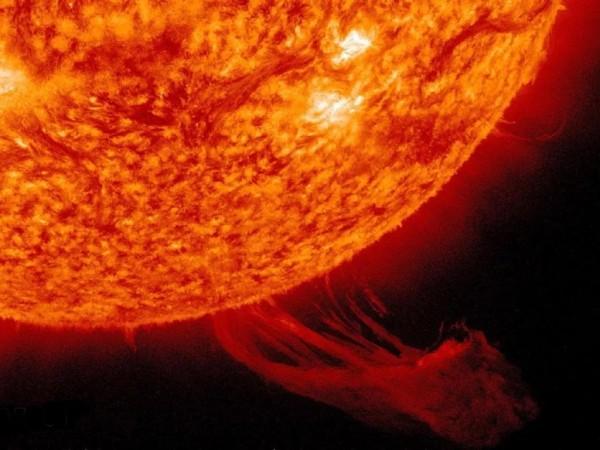The Earth witnessed a powerful solar storm in nearly six years, causing auroras all over the US, the National Oceanic and Atmospheric Administration (NOAA) said.
NOAA had earlier announced moderate G2 storm and G3 conditions between March 23 and 25.
However, the Earth witnessed a geomagnetic storm of magnitude G4, causing the NOAA to update its warning.
"Geomagnetic storm responses increased and G4 levels first reached Earth on March 24 at 12.04 EDT," it read.
"CME influences continue and geomagnetic response escalated to the G4 (severe) storm level on 24 March at 12:04 am EDT (24/0404 UTC).

The G3 Warning remains in effect until 5:00 am EDT (24/0900 UTC)," it added.
NOAA said that the severe G4 storm can affect the power grid system with possible widespread voltage control problems; and spacecraft operations with increased possibility of surface charging, and atmospheric drag risk on Low Earth Orbiting (LEO) satellites.
According to NOAA a powerful geomagnetic storm causes severe disturbances to Earth's magnetic field, spewing solar material from coronal mass ejections (CME) - large expulsions of charged plasma from the Sun's upper atmosphere or the corona.
The solar storm was the result of a "stealth" CME. It came from a coronal hole wider than 20 Earths that was spewing out solar winds at speeds over 2.1 million km/h, Live Science reported. And the storm was the most intense in the last six years.

The storm's unexpected ferocity not only made auroras visible as far south as New Mexico in the US, but it also forced spaceflight company Rocket Lab to delay a launch by 90 minutes, Space.com reported.
We can expect more extreme space weather events like this powerful geomagnetic storm as the sun builds towards a peak in its 11-year solar activity cycle, expected to occur in 2025, the report said.
(With inputs from IANS)
















